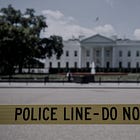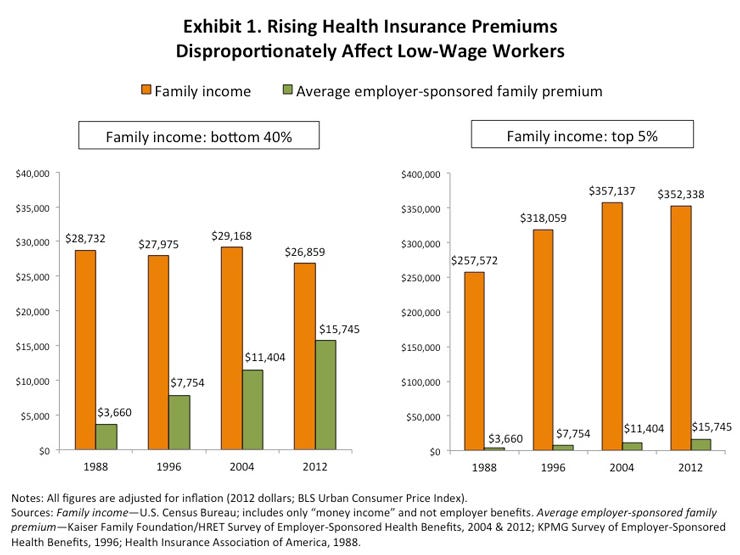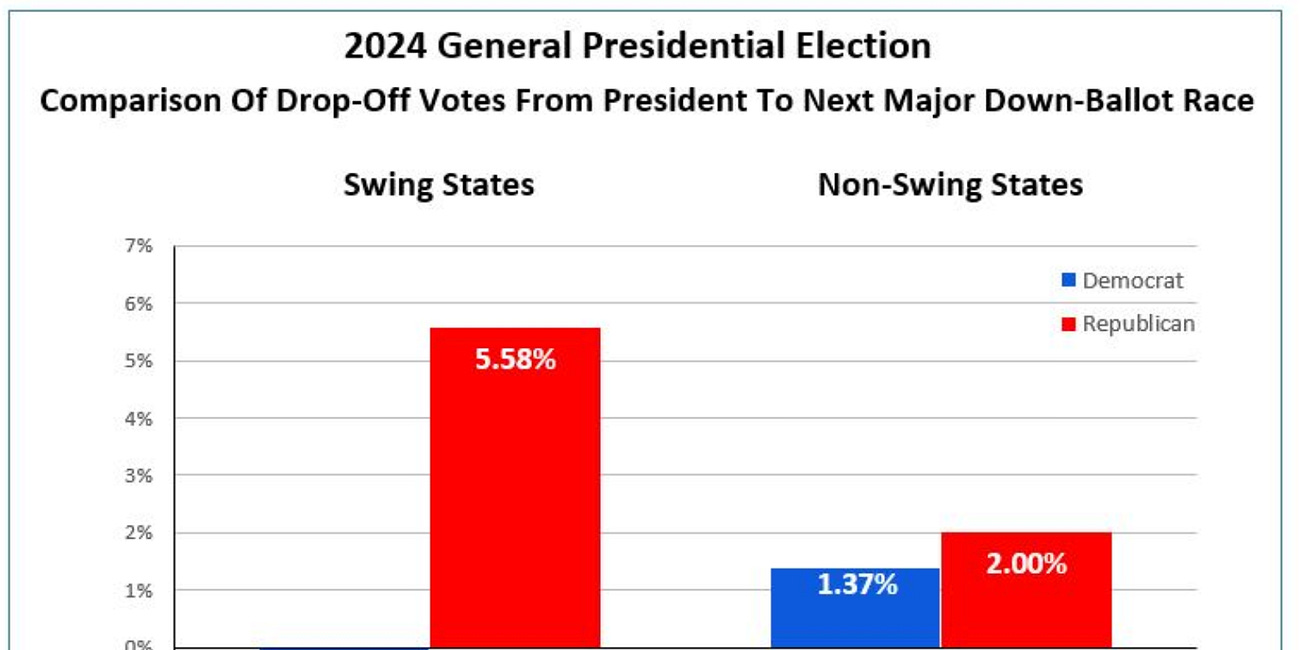What the UnitedHealth CEO Killing Tells Us About America's Political Climate
Update #18 | Brian Thompson's murder united the left and the right. Why?
If you haven’t read the original post,
I highly recommend reading it first ↓
Author’s Note: This post is too long for some email clients. You may have to open it on your browser instead.
Update #18
The American people are fed up
On Wednesday morning, in the pre-sunrise gloom, a CEO was gunned down in Midtown Manhattan. But it’s the aftermath of this brazen assassination that paints the clearest picture of an America approaching a tipping point.
The murderer—since identified as 26-year-old Luigi Mangione—instantly gained folk hero status as a symbol of defiance against a political and economic bureaucracy that no longer answers to the people. “Deny, Defend, Depose,” the words he scrawled on the bullet casings found at the scene of his crime, have become a rallying cry for some. And the widespread celebration and mockery of CEO Brian Thompson’s violent death has been eye-opening for many.
It remains to be seen if Mangione’s are the first shots in a revolution, or some of the last demonstrations of defiance as the U.S. slips into oligarchy.
America’s Wealth Gap: the Great Inequalizer
We can’t talk about the 2024 U.S. election, how it didn’t represent the will of the people, or what happens next, in any detail without discussing the greater socio-economic factors that got us here.
The U.S. is experiencing one of the most divisive political climates in its history. Our society is polarized to levels that rival, and in some ways surpass, the period leading up to the Civil War. Political ideologies have become entrenched in ways that seem insurmountable to the masses, with growing hostility between major political parties and factions within each party.
This divide is not just about policy differences; to many, it’s about survival. It’s about identity, values, and a sense of belonging. On one side, there is a loud, nationalistic right-wing movement, fueled by dark money in politics, blatant propaganda, and a desire to "take back" America. On the other side, progressives are pushing for systemic change to address economic inequality, environmental regulation, and social justice issues—all items that disproportionately affect those marginalized in society.
Which of these two Americas will continue, and which will be dismantled underfoot by the march of progress?
There’s no longer common ground between the two parties in America’s two-party system. This has contributed to gridlock, leading to distrust in the electorate and an erosion of the traditional norms that once held the country together.
Meanwhile, wealth inequality in America has reached unprecedented levels, surpassing even the disparities seen during the French Revolution.
In the first quarter of 2024, the top 10% of earners owned nearly two-thirds of the country's total wealth, while the bottom 50% only owned 2.5%. The top 1% of American households hold more wealth than the entire middle class combined, and have since 2020.
The wealthiest 10% of Americans hold more than 88% of all available equity in corporations and mutual fund shares. I could go on for days talking about this, but this isn’t meant to be a discussion proving wealth inequality exists. After all, 61% of Americans said there was too much economic inequality in the U.S. in 2020, and it’s only exploded during COVID and the subsequent “shrinkflation” years.
“Wealth in the United States is concentrated, and getting more so,” said Mark Zandi, chief economist at Moody’s Analytics. “This has been in the makings, really, for two generations, maybe three. And the trend lines are disconcerting.”
What he means by “disconcerting” is that it’s unsustainable.
This stark concentration of wealth in the hands of a few individuals and corporations has created a system where the majority of the population struggles to maintain a standard of living while a small elite continues to amass staggering amounts of money. This economic imbalance is not just a moral or social issue—it has deep political implications.
Please take ten seconds to share this article and help get the word out!
Donald Trump didn’t just steal the election, he stole America’s future. And it will stay that way unless we do something about it.
When the rich control most of the wealth, they can influence policy, undermine public welfare, and perpetuate their dominance. This has been going on for decades. Well, centuries, actually. The result is a vicious cycle where the wealthy gain more power, further exacerbating the inequality, and leaving the vast majority of Americans with limited opportunities for economic mobility.
How the wealth divide influences politics
The rise in wealth inequality has given way to growing populism and frustration among ordinary Americans. As the gap between the rich and the poor widens, more and more people feel left behind by a political system that seems to cater only to the wealthy.
This frustration manifests in the form of populist movements that promise to upend the status quo and "drain the swamp." Populist leaders claim to represent the interests of the working class, tapping into anger over economic stagnation, declining job security, and a sense of betrayal by traditional elites. While this rhetoric resonates with many, it often obscures the true forces at work—wealthy elites and large corporations continue to hold power, even as they manipulate populist sentiment to maintain the systems that benefit them.
A major factor in the current political climate is the deliberate spread of misinformation, particularly by media outlets like Fox News, certain Republican politicians, and even foreign actors like Russia. Through carefully crafted narratives, these groups have created a distorted view of reality for large segments of the American population. One of the many results has been a widespread belief among many that the Republican Party is fighting against "the establishment," "big business," and "the elites," despite the fact that these are the very forces that the GOP has consistently championed.
This distortion is designed to create a false sense of populism, where the GOP is seen as the protector of blue-collar workers, even though its policies largely benefit the wealthiest individuals and corporations. At the same time, Russian propaganda has actively fueled this narrative, exploiting existing divisions and deepening political polarization.
In this way, Republican legislators have been allowed to maintain the status quo for much longer than would have been possible in a more informed electorate. Despite the growing anger over wealth inequality, health care, and economic justice, Republican lawmakers have managed to stave off meaningful reforms by manipulating public perceptions. This has kept policies that benefit the rich—such as tax cuts for the wealthy, deregulation of industries, and resistance to universal healthcare—intact. The political system has become so muddied that, even though many Americans are frustrated and demanding change, they continue to vote for politicians who ensure the perpetuation of the very systems that have exacerbated their struggles.
In this environment of confusion and division, many Americans, particularly those who feel left behind by the political system, have turned to populist figures like Donald Trump. Trump’s appeal as an outsider—someone who isn't part of the so-called "elite" establishment—has resonated with millions of voters. Despite his wealth and ties to oligarchs, Trump has successfully positioned himself as a champion of the working class, while attacking the very institutions that working class Americans rely on.
His domination of Republican politics for the past decade is, in part, a testament to the strength of his populist appeal, tapping into widespread anger and frustration with the political system. It underscores a deeper issue: Americans are looking for change. And they’re willing to embrace anyone promising to disrupt the system, even if that person doesn't actually represent their best interests.
On the other side of the political spectrum, the progressive wing of the Democratic Party has found growing support, particularly among younger voters. Figures like Bernie Sanders and Alexandria Ocasio-Cortez have become icons of a new generation of activists and politicians pushing for bold reforms to tackle wealth inequality, healthcare, climate change, and other systemic issues. This movement—though less successful than that on the right—has tapped into the same attitudes about the ruling class that have fueled Trump’s rise, but with a focus on justice, equity, and holding corporations accountable.
Agreeing amidst division
Despite the deep political divide in America, there is one area where there is surprising agreement: the ultra-rich and their powerful corporations are the problem. If you don’t believe me, just check the comments of recent videos from conservative spin doctors Ben Shapiro and Matt Wallace. Which brings us back to the brutal public execution of UnitedHealthcare CEO Brian Thompson.
As of this year, the UnitedHealth Group, the parent company of UnitedHealthcare, is one of the largest companies in the U.S. by market cap, just below Apple, Microsoft, Alphabet (Google), and Amazon. UnitedHealthcare, one of the biggest health insurers in the U.S., is infamous for having obscenely high rates of medical claim denials. Just last year, the company was sued for knowingly using a faulty AI program to illegally deny elderly patients medically necessary coverage.
Thompson, 50, joined UnitedHealth Group in 2004. He was previously the chief executive of UnitedHealthcare’s government programs, including Medicare & Retirement and Community & State. He also led UnitedHealthcare Medicare & Retirement. He became CEO of UnitedHealthcare in April 2021.
America’s healthcare system is bad and getting worse. Americans pay more for it, and get less from it, than any other wealthy nation. People in the U.S. have the shortest life expectancy and the most avoidable deaths compared to other wealthy nations. Plus, health insurance costs have risen much faster than inflation. Denials of health claims also increased 31% from 2022 to 2024, according to a 2024 Experian survey.
For the over 150 million Americans who rely on employer-provided health insurance, rising healthcare costs are driving wealth inequality. As premiums skyrocket, employers stagnate growth in take-home pay to keep total compensation the same.
In recent decades, healthcare costs have eaten up a growing share of workers' compensation, pushing middle-class wages further behind productivity gains. From 1999 to 2009, at least, soaring healthcare expenses—both premiums and out-of-pocket costs—completely erased wage growth for the average family.
Despite taking up larger and larger chunks of workers’ paychecks, Americans are struggling to make their health insurance effective. High deductibles and copays force nearly 40% of working-age adults to delay medical care, while a third face medical or dental debt. Billing mistakes and coverage denials by insurers worsen the financial strain.
"What we see in this country is that the number one cause of bankruptcy is health-care-related expenses," said Dr. Céline Gounder, editor-at-large for public health at KFF Health News. "We've gotten to a point where health care is so inaccessible and unaffordable, people are justified in their frustrations.”
It’s unsurprising, then, that the frustrations of millions of Americans would boil over into violence.
America’s healthcare system is broken. And it’s not just a health issue—it’s a symptom of a broader economic divide, where the richest benefit from an unjust system, and the rest are left to fend for themselves. The failure to provide universal, affordable healthcare highlights the deep flaws in a system that prioritizes profit over people.
It’s the economy, stupid
When Trump “won” the 2024 election, the media was quick to point out that, while the American economy has recovered from COVID inflation better than that of any other western nation, most Americans still viewed it unfavorably. Over 80% of American voters said the economy would be very important to their 2024 presidential vote. So it follows that portions of the electorate would have rejected the successes of the Biden/Harris administration and turned to Trump over his vow to help the “hardest working citizens.”
Once again, Trump represented the change so many Americans desire. As a self-styled political outsider, his voters equated his promises of greatness and swamp-draining with action resetting the economy and political order.
If he takes office, Trump will inherit Biden’s historically strong economy. But he won’t be able to maintain it if he implements his campaign promises to replace income taxes with tariffs, benefitting his billionaire friends and adding trillions to U.S. debt. In the weeks after his apparent victory, Trump’s tariff plan has come under fire, with many of his voters saying they didn’t understand that they would raise prices of consumer goods.
The world’s ten wealthiest billionaires, including Trump “co-president” Elon Musk and Jeff Bezos, gained a collective $64 billion in a day when the media called the election for Trump. That’s the largest single day jump, according to the Bloomberg Billionaires Index. The market must know something the voters don’t.
Then there’s the unprecedented collection of billionaire backers and sycophants Trump calls his cabinet. It’s been described as “the wealthiest in history,” but that’s an understatement. It’s an oligarchy.
Here’s how The Independent described it:
[Trump’s] incoming administration reflects a government run by billionaires, stuffed with Wall Street fixtures, investment bankers, real estate developers and oil executives, all within reach of power to slash services that millions of poor and vulnerable Americans depend on.
Far from draining the veritable swamp, Trump has steeped himself into it. Musk is joined in Trump’s orbit by the likes of Linda McMahon, Howard Lutnick, Vivek Ramaswamy, Scott Bessent, Steve Witkoff, and others. Added together, the ultra-rich people Trump tapped for his administration are worth more than $383 billion—a figure greater than the GDP of 172 countries.
And they intend to tear down Social Security, Medicare, SNAP benefits, and Obamacare, putting millions of American families in jeopardy.
This is the inevitable outcome of a democracy with a wealth divide that’s tipped too far toward the top. The rich keep amassing fortunes until they’re faced with a choice: share their wealth for the good of the nation and inch toward socialism, or leverage their power to seize control of the government and slide into oligarchy.
Political science professor Jeffrey Winters of Northwestern University argues that we’ve reached the point where the loaded term “oligarch” should be applied to many of America's ultra-wealthy ruling class. While the label “oligarchy” is usually applied to a group Eastern European businessmen with corrupt sway over their government, the the term itself simply means a small number of people who have outsize political control due to their massive wealth. And it looks a lot like Trump and his cronies.
The super-rich have bought the United States.
When power shifts from the people to the few
The core of democracy lies in the equal distribution of power, which is why we champion ideals like "one person, one vote." Each person having a single voice is the most fundamental democratic ideal.
Then, can we really say that an election is “free and fair” when an oligarch like Elon Musk is able to buy Twitter, fire all the people in the company monitoring disinformation, modify the platform’s algorithm to benefit one candidate, and use it to spread foreign propaganda about the other candidate?
Sure, at the ballot box, he’s the same as you or me. But we don’t have the power or platform to manipulate millions of people. It’s glaringly obvious how distorted and undemocratic the system has become.
In the last week, Romania overturned its recent presidential election because a group of users manipulated a social media platform, in this case TikTok, to amplify a pro-Russian populist right-wing candidate’s message. They key part about it was that spending on behalf of a campaign needed to be tracked and kept within limits, so this untracked social media operation was undemocratic.
Here in the U.S., our campaign finance laws specify a legal limit for spending as well. An individual can donate up to $3,300 to a candidate per election, $5,000 to a political action committee per year, and $41,300 annually to a national party committee.
However, superPACs, expenditure-only committees with no direct connection to the candidate, are not subject to these limits. And apparently neither is it tracked if you spend $44 billion to buy Twitter and use it to amplify right-wing propaganda. Seems pretty undemocratic to me, like the election was stolen even if there wasn’t a single fraudulent vote.
Which raises the question…
If we already have a health insurance CEO getting gunned down in the street, to the cheers of the masses…
…and if both the right and the left agree that billionaires, CEOs of powerful companies, and other ultra-rich elites are the heart of the problem…
…and if Trump pledged to help the working class, but instead fills his administration with billionaires…
…and if Trump implements his tariff plan and gives huge tax cuts to the wealthy…
…and if he simultaneously guts Social Security, Medicare, SNAP, and the ACA/Obamacare…
…and if 14 million Americans have their health insurance taken away because of it…
…what do they think is going to happen?
More soon.
If we don’t take action to defend democracy, we don’t deserve to keep it.
If you have relevant information to contribute, please email: tinfoilmatt@proton.me
Read the next update:
Strange Numbers: 'SMART Elections' Team Confirms Fishy Swing State Results
Update #19 | Data supports theory in Spoonamore's "Duty-to-Warn" letter








